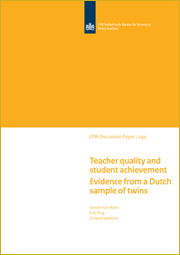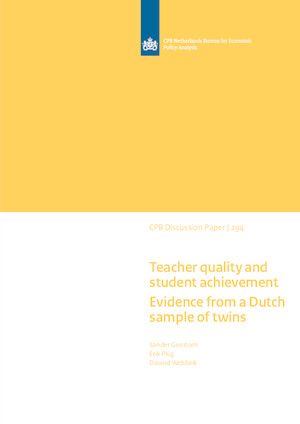Teacher quality and student achievement: Evidence from a Dutch sample of twins

In particular, we apply twin fixed-effects estimation to assess the effect of teacher quality on student test scores from second through eighth grade, arguing that a change in teacher quality is probably the most important classroom intervention within a twin context. In a series of estimations using measurable teacher characteristics, we find that:
(a) the test performance of all students improve with teacher experience; (b) teacher experience also matters for student performance after the initial years in the profession; (c) the teacher experience effect is most prominent in earlier grades; (d) the teacher experience effects are robust to the inclusion of other classroom quality measures, such as peer group composition and class size; and (e) an increase in teacher experience also matters for career stages with less labor-market mobility which suggests positive returns to on the job training of teachers.
